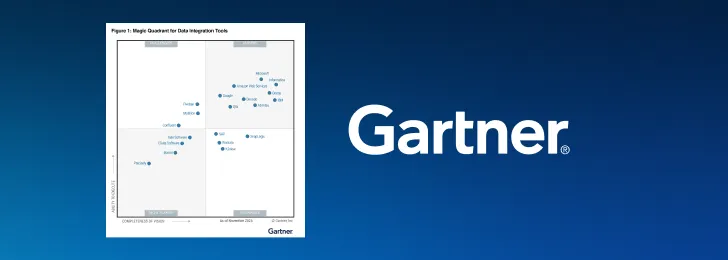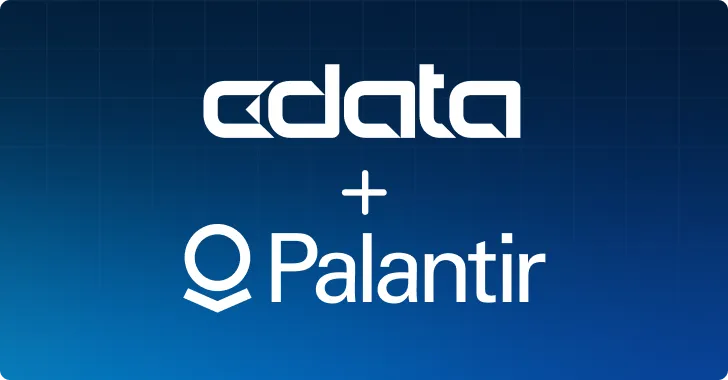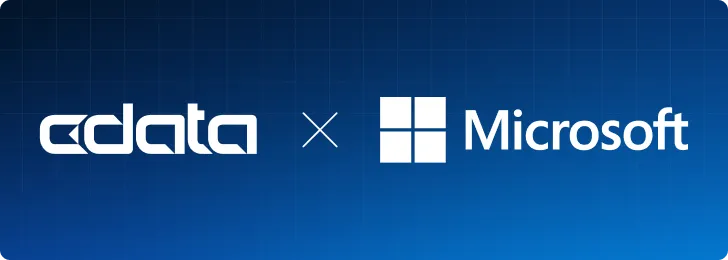
Without parameters, processes, policies, and purpose, data is just data. Putting it to work requires setting up a framework of rules that guide how data is handled, stored, processed, and used. This article takes a closer look at effective data governance, breaking down its key concepts, the business value of data governance, and the many benefits for organizations of all industries. Learn how effective data governance can lead to better decision-making, improved security and compliance, and help you get the most out of your data.
What is data governance?
The Data Governance Institute defines data governance as a system that establishes decision rights and accountabilities for information-related processes. It sets the rules and guidelines for ensuring an organization’s data is handled properly, kept secure, and used correctly.
Data governance lays out who is responsible, which tools are used, how procedures are executed, and what actions are taken in specific situations. It defines the rules of good data management, including the actual practices, tools, and data-handling processes. This includes selecting appropriate data governance tools, building effective data catalogs, and implementing metadata management to maintain order and accessibility.
The importance of data governance
So, why do we need data governance? Data governance helps maintain data integrity, security, and usability of an organization’s data. It establishes the data management framework to ensure that data is consistently accurate and compliant with legal and regulatory standards, preventing breaches, misuse, or data inaccuracies. By defining clear roles and responsibilities, an effective data governance plan helps organizations avoid issues and maintain control over their data assets.
In addition to safeguarding data, data governance benefits include supporting organizational transparency and accountability to build a reliable and trustworthy data environment. Businesses can track data usage, manage metadata, and audit processes to align data-related activities with broader business goals and ethical standards.
The business value of data governance
A solid data governance plan directly impacts a company’s ability to operate efficiently and competitively. With strong data governance, organizations can protect proprietary information, such as trade secrets and internal strategies, helping to foster innovation and maintain a competitive edge.
Embedding a governance plan into best practices for daily processes reduces risks associated with non-compliance and data breaches, which can lead to costly fines and reputational damage. It supports informed decision-making by ensuring data is reliable, up-to-date, and easily accessible, ultimately contributing to better strategic planning and business outcomes.
10 Benefits of data governance
- Improved data quality: Data governance sets standards for handling data, which minimizes errors and discrepancies from manual processes or multiple data sources. Regular audits ensure information used for decision-making is accurate and current. Accountability is established by designating responsible individuals or teams to maintain and update data, ensuring its quality and integrity throughout its lifecycle.
- Enhanced data security and compliance: Data governance enforces strict security protocols that protect against breaches and unauthorized access. It also ensures that your organization meets all necessary legal requirements, like the General Data Protection Regulation (GDPR) and the Health Insurance Portability and Accountability Act (HIPAA) by embedding compliance into daily operations. This helps to safeguard sensitive information and helps avoid legal penalties, ensuring that your data practices are always up to standard.
- Increased data accessibility and usability: A structured data governance framework ensures data is available to the right people at the right time. By standardizing data formats and ensuring proper documentation, governance makes data easier to find, understand, and use, leading to more accurate analysis and better decision-making.
- Clearer decision-making: Data governance ensures that the data used in the decision-making process is reliable and trustworthy. By setting data quality and integrity standards, data governance ensures that the data is accurate, complete, and consistent by defining data cleansing and verification processes. When decision-makers have access to high-quality data, they can make confident, informed choices.
- Lower data management costs: Data governance streamlines data management processes, reducing the likelihood of costly errors and inefficiencies. A well-structured framework will address retention and deletion practices and procedures, ensuring that data is handled properly from beginning to end.
- Better data integration: Data governance establishes the formats, definitions, and standards, creating more streamlined data integration. This provides a more comprehensive and accurate analysis of business operations, providing critical support for strategic decision-making.
- Enhanced collaboration and innovation: A common framework for managing data through effective data governance fosters collaboration and data democratization across departments. When everyone adheres to the same data practices, sharing insights and working together on projects is easier. This allows teams to explore new ideas and develop creative solutions confidently.
- Improved risk management: Beyond security and compliance, data governance plays a vital role in managing broader data-related risks. This includes identifying potential vulnerabilities in data handling, assessing the risks of data inaccuracies, and preparing for potential crises. Proactive plans help organizations avoid costly disruptions and ensure business continuity even when unexpected issues arise.
- Deeper customer trust: When customers know that their data is handled with care and in compliance with regulations, they are more likely to engage with and remain loyal to the company. This trust can become a significant competitive advantage.
- More informed strategic planning: With strong data governance, organizations can rely on high-quality, well-integrated data to inform their long-term objectives. Consistent and accurate data provides a solid foundation for strategic planning. Leadership can make better predictions, assess risks more effectively, and set realistic goals backed by data-driven insights.
Use cases of data governance
Financial institutions
Financial institutions depend on robust data governance to manage sensitive information like customer details, transactions, and investments and ensure compliance with regulations such as GDPR and the Sarbanes-Oxley Act. Strict guidelines govern data collection, storage, processing, and sharing, including solid security measures to prevent breaches and maintain transparency. Data governance protocols help financial firms avoid substantial legal penalties and uphold the institution's reputation for reliability and trustworthiness.
Healthcare
Data governance is critical for handling sensitive data vital to patient care and medical research. It establishes protocols for managing patient information, including medical histories and treatment plans, ensuring confidentiality and compliance with regulations like HIPAA. Healthcare data governance policies set clear rules for accessing and updating patient records, crucial for maintaining patient privacy and providing healthcare providers with accurate information for medical decisions.
Artificial intelligence and machine learning
Data governance in artificial intelligence and machine learning (AI/ML) efforts helps to ensure that the data fueling these technologies is accurate, unbiased, and of high quality. By implementing strong governance, organizations can provide AI/ML algorithms with datasets that truly represent the problem space, minimizing the risks of bias and error in model outcomes and creating more effective and trustworthy applications.
Employ robust data governance with CData
CData Connect AI helps streamline your data governance processes with robust access controls, centralized monitoring and auditing, and support for pass-through user authentication. Get support for hundreds of cloud applications, databases, warehouses, and other sources for governed data access with the tools you use every day.
Try CData for free
Discover how CData can help integrate and streamline your data ecosystem.





